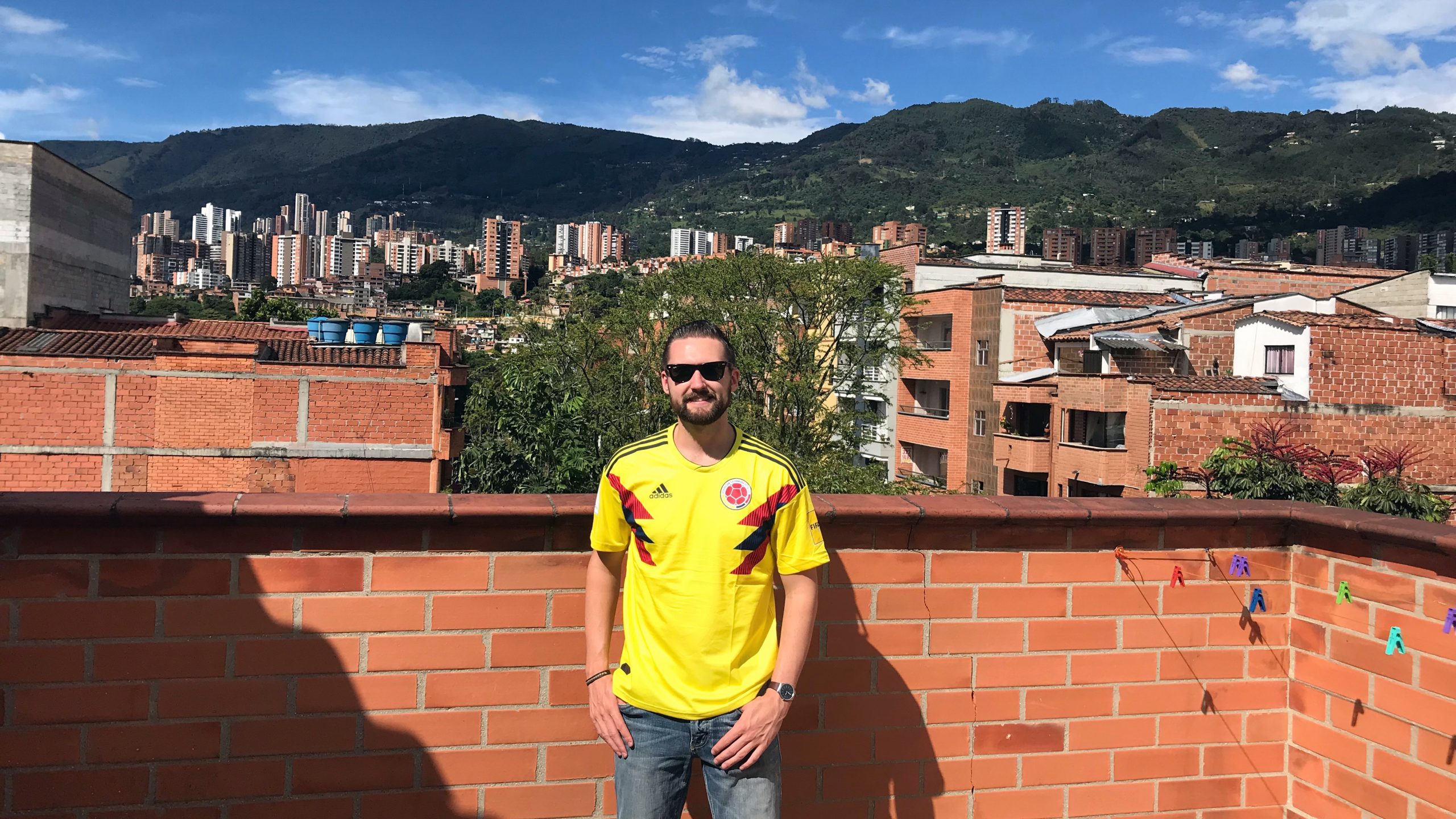Less than 12 hours after walking across the commencement stage at Gustavus Adolphus College, Bjorn Kjelstad ’17 was on an airplane, heading toward his new job as a Program Assistant for the Council on International Education Exchange (CIEE) in Guanajuato, Mexico.
“Gustavus’ top-notch Spanish program was key in developing my ability to carry out research and communicate professionally in Spanish,” Kjelstad said. “A working proficiency in a second language, in my case Spanish, has opened numerous doors for me with regards to potential career paths.”
After serving in the role that summer, he returned to the United States as an intern for the Council of Hemispheric Affairs in Washington D.C. Following his stint in Washington, Kjelstad joined the research and writing team at InSight Crime in Medellín, Colombia. InSight Crime is a foundation that focuses on studying organized crime in Latin America. Some of the topics he’s researched include fentanyl trafficking, illegal wildlife and timber trafficking, and criminal dynamics between Colombia and the hemisphere’s largest guerrilla group.

“I find the inner workings of organized crime fascinating, and was initially turned on to the subject after taking [sociology and anthropology] professor Suzanne Wilson’s Drugs and Society course my senior year. I am specifically interested in how organized crime in Latin America can co-opt politics at the local, state and, in some cases, national level,” Kjelstad said.
He also credits professor Angelique Dwyer for her mentorship and support.
“Dr. Dwyer was not only crucial in my development as a Spanish student, but also in inspiring me to live a life of service after Gustavus,” the Andover, Minn., native said.
The professor has equally positive things to say about Kjelstad.
“If I have been fundamental in [Kjelstad’s] development as a student, I can truthfully say that he has been impactful to my own growth as an engaged scholar as well,” Dwyer said, pointing out that Kjelstad was especially helpful with growing and sustaining the College’s Language Buddies program, which connects Hispanic families to Spanish-speaking Gustavus students in order to foster stronger language skills.
“In Language Buddies we stress the importance of reciprocity. In this sense, Bjorn has motivated and challenged me as much as I believe I may have inspired him,” Dwyer said.
Just as important as his time on campus was the time Kjelstad spent out of the country. He studied away twice while a student at Gustavus: first to Havana, Cuba, during January Interim Experience, and later to Guanajuato, Mexico for the fall semester of his senior year.
“My time studying abroad was key in my development as a Spanish speaker, along with enhancing my intercultural communication skills. Studying abroad, specifically in Latin America, also prepared me well for living and working in the region after graduation.”
Kjelstad considers his work exploring crime in Latin America as not just interesting, but important.
“It was very meaningful to analyze and participate in the debate over one of the most serious security threats facing Latin America today: organized crime. I was also extremely fortunate to be able to work with some of the most experienced, cited, and respected experts on Latin American organized crime in the world,” Kjelstad said.
The biggest preparation for his career in Latin America, though, was larger than an individual department or experience. It was the liberal arts education he received at Gustavus.
“The study of organized crime is multifaceted and nuanced, and requires taking complex issues and/or relationships and breaking them down into smaller, more understandable parts,” Kjelstad said. “The liberal arts education at Gustavus provided me with the tools necessary to look at complex problems from multiple viewpoints in order to enhance my analyses.”

Leave a Reply
You must be logged in to post a comment.